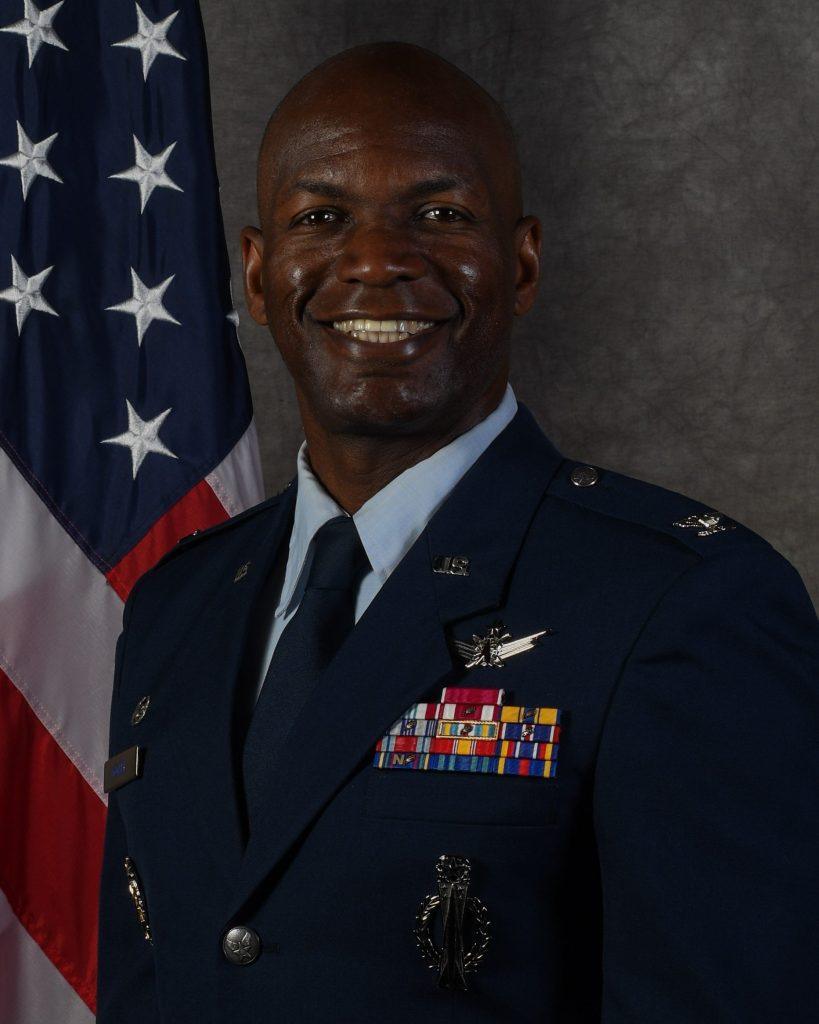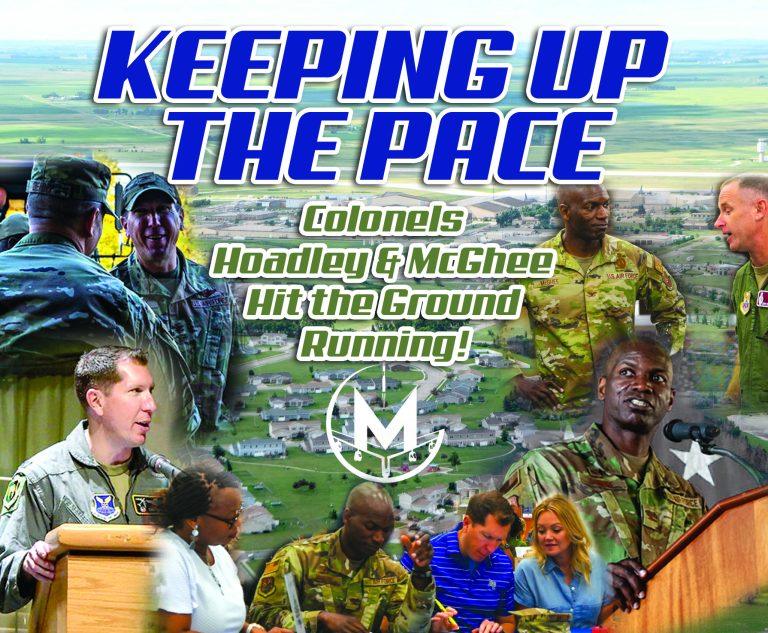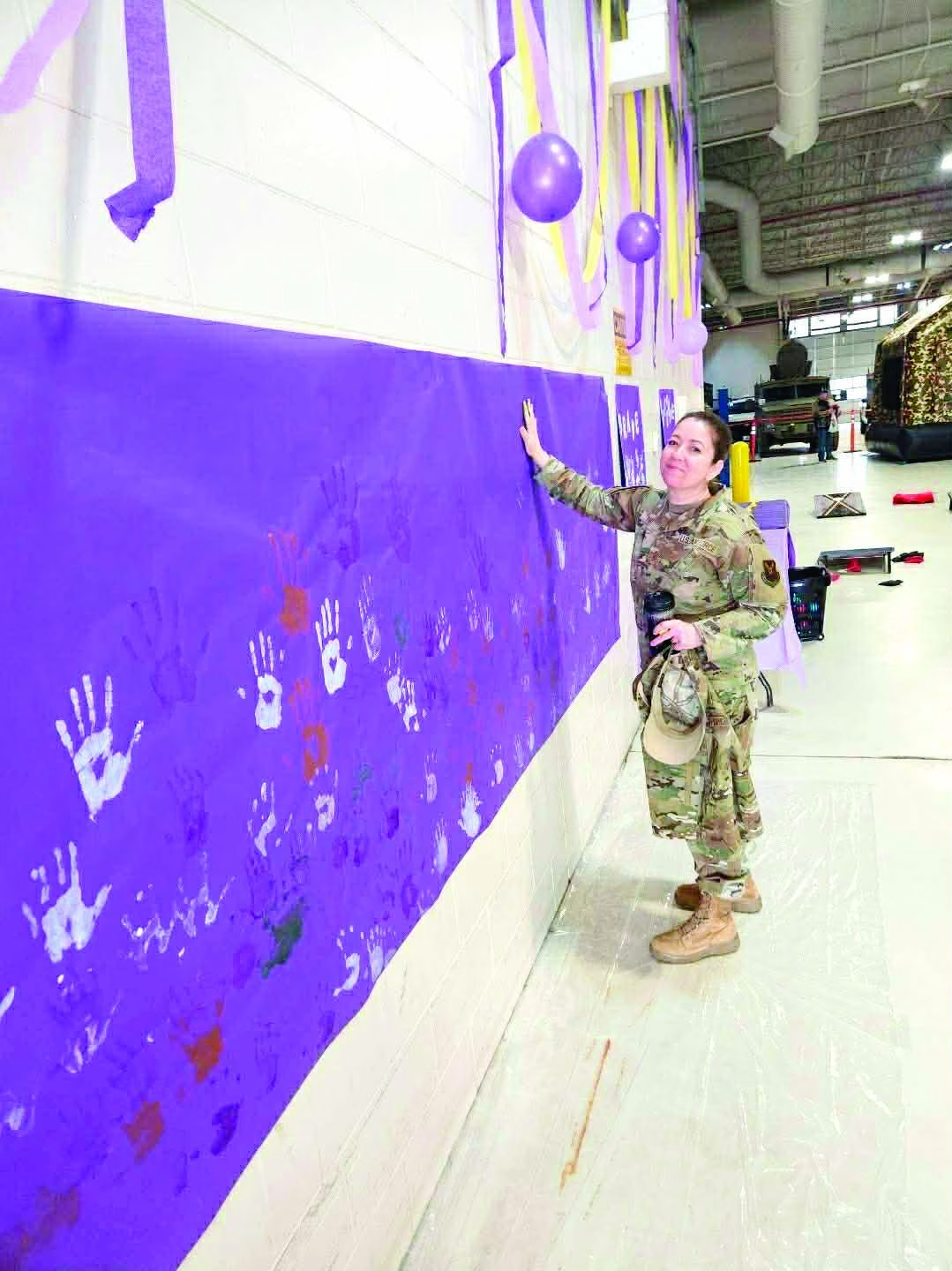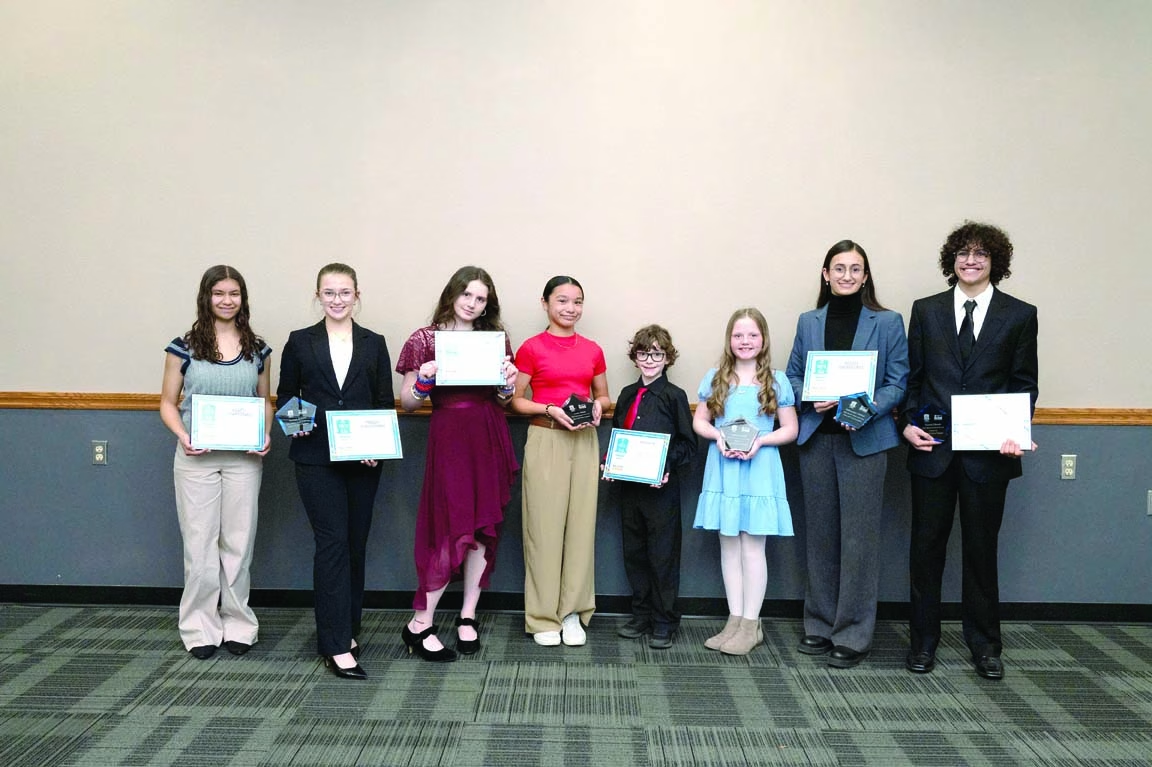
91st Missile Wing Commander
U.S. Air Force Photo
NS- Col. McGhee, let’s talk about your career in the Air Force.
Col. McGhee- I enlisted in the Air Force in 1998 after graduating from Rhodes College in in Memphis, Tennessee in 1997. I was a recruiter for a year, and then I headed out to Vandenberg in California for my ICBM training. I did my first operational duty at Malmstrom Air Force Base in Montana for four and a half years then left there and went back to Vandenberg Air Force Base for ICBM operations. I was selected to be the Aide de Camp of the 10th Air Force Commander, and then I PCS’d to F.E. Warren Air Force Base. I was Aide de Camp for one year, and then went across the street to the 90th Missile Wing where I was the Maintenance Officer for three years. I really enjoyed my time there and got a real appreciation for what goes on in the maintenance field and also in security forces as well.
After that I went to Sandia Nation Laboratories in Albuquerque, New Mexico, for school; it was the best academic year of my life. Then I ended up at Global Operations in Omaha, Nebraska, and served on staff there for two and a half to three years. I got the invite to come to Minot Air Force Base the first time to be the D.O. (Director of Operations) of the 740th Missile Squadron, and I enjoyed my time in the 740th.
After that, I moved over to the Inspector General position for about four months and then assumed command of the 741st Missile Squadron after that. I loved my initial tour here at Minot and did some pretty unique things—things that I had never done in my life before—and I looked forward to doing some of them since I have been back. I actually left here and went down to Barksdale Air Force Base to serve to serve as the Commanders Action Group Chief for about a year and then moved out to Washington, D.C., to the National War College. Then, I went over to the Pentagon to work on the Chairman’s Staff in Continuity of Operations for the Chairman. And after that I PCS’d to Malmstrom Air Force Base as Operations Group Commander before taking the assignment here. It’s been an interesting 24 years.
NS- Your time here the first time was pretty unique, having been part of the 740th and 741st Missile Squadrons.
Col. McGhee- It was unique. It allowed me to see how things work, especially in the operations field here. Each missile wing operates a little differently, and it’s no different here. Getting an understanding as the Director of Operations in the 740 MS gave me a good foundation. Seeing how the operations work prepared me for actual wing command here at Minot Air Force base.
NS- As I talked with Col. Hoadley, it seems that you guys really hit the ground running, both wings, when you guys took over. Were you prepared? Did you anticipate it was going to be this busy for these first few months at Minot Air Force Base?
Col. McGhee- Well, you know you are going to be a wing commander in advance, so it helps to know that in order to prepare you and give you have an idea of what is going on, but nothing really prepares you for those first few weeks or months in command. So yes, the pace was very busy, so I jumped into it very aggressively and enthusiastically. It didn’t surprise me as much as it took me a moment to set my pace to handle it. A lot of people say it’s like drinking out of fire hose. I have often said that it’s not a sprint, it’s a marathon. The difference in this position is that it’s a marathon with a two-and-a-half-hour pace. It’s not so much surprising, but it takes some getting used to. I think I have my legs under me now.
NS- So how did the first months go?
Col. McGhee- It’s been fantastic. I’ve met phenomenal people across the City of Minot and other local communities. We’ve had engagement with other folks outside of these local communities and the town of Minot that have been absolutely fantastic. Our civic leaders and the relationship that we have with our downtown leadership has been absolutely remarkable. People have said that this is the best involvement as far as civic leaders getting involved. And the on-base relationship between the 91st Missile Wing and the 5th Bomb Wing has been absolutely phenomenal. The partnership that I have with Col. Hoadley on the 5th Bomb Wing side, and the way that our two staffs work together across base to get at larger issues, is remarkable.
NS- You’ve been other places. Do you see a difference in the relationship between the base and the City of Minot, downtown if you will, compared to other bases where you have been?
Col. McGhee- In my previous opportunities to work with civic leaders, they’ve all been fantastic. The time that I had at F.E. Warren, the time that I had at Malmstrom, the relationships between those who are civic leaders and those leaders on base has been amazing. I won’t say that those relationships were more or less successful, but I will say that this one is special. The relationships between the wing staffs and the civic leaders here… it’s just special.
NS- So you took over and didn’t have to walk right into the unknown situation of conducting operations during COVID. Is there a difference, in your opinion, of base morale now that we have been through COVID and come out the other side?
Col. McGhee- There is a difference in what is being done now, versus what was being done before. We always are concerned about the health and welfare of not only our members on base, but the people in the local communities. I think the biggest difference is that we were focused on operations and procedures in the heart of COVID, and now we are somewhat transitioning away from that. It isn’t as significant, but it certainly is one of those things that stays on our minds. Between our Med Group and the local officials downtown, we are still tracking COVID numbers, so we are always on top of the situation and looking out for the health of our members. Right now, we are trying to focus on getting back to pre-COVID activities such as the Air Force Ball and larger events. Now we are just trying to stabilize and balance ourselves through this transition.
NS- As I understand it, there are some “best practices” that came out of the COVID situation that are still in place.
Col. McGhee- Things have changed over the past few years. We have transitioned to three different waves for our crew members and our security forces. While one squadron is in the field, the next squadron is in the preparatory phase, and the third squadron is in rest stage. That has paid great dividends for us when it comes to the physical and mental health of our Airmen. They get significant time for rest and recovery. Training has also increased. Also, when we are deploying to the missile fields, our security forces are on the same schedule as our operators. Before that was not very common. So, we’ve been able to establish relationships, both professionally and personally, with those in the other operations groups and the security forces groups, and that cohesiveness has made us stronger. The third thing I will add is that we have changed the rate that we are moving our crew members from base to base. Our crew members don’t have to move every three to four years, they have the option to. That allows them a little bit more flexibility in the first six to seven years of their career. What we are finding is that in our missile wings our crew members don’t necessarily want to depart. You get used to the community, you love the community, it works for them. And they end up staying for six years for their first tour.
NS- There seems to be more of an emphasis on serving each individual Airmen, and there is a focus on mental health. Do you see a difference in how the Air Force is reaching out to the Airmen through the many different programs?
Col. McGhee- I think that we have always kept our Airmen in the forefront. Society kind of changes and focuses on different things. We have reached out to our Medical Group to find ways to reach out to our Airmen with mental support programs, and we have utilized our chaplain’s corps and military family life counselors as well. We also focus on reaching out to our local community for support, because our downtown healthcare facilities and providers are also providing additional support for our Airmen. I guess I can say that we have and will continue to focus on the well-being of our Airmen.
NS- So when you are not on duty, what do you find yourself doing in Minot, ND?
Col. McGhee- Well, my wife and my daughter consume a significant amount of my time when I’m not on duty. My daughter is attending one of the local high schools. She’s a 9th grader now, so it’s important to spend time with her when I’m not on duty. Also, my lovely bride needs listening for the time that I am there, and we like getting out and seeing what is available in the town of Minot. We explore new restaurants and also get out to the lakes and enjoy hikes that are available here. I am also an amateur athlete. I get out there and run and cycle, so the time I’m not in the office I am enjoying those types of things.
NS- And you are recently married?
Col. McGhee- Yes, June 15th was the wedding day. It happened in a flash. We got here, and it happened shortly after we arrived, and since then it has been a whirlwind.
NS- Anything else you would like to add, Col. McGhee?
Col. McGhee- Well in general, I think the town of Minot has changed from the first time we were here. Downtown seems more vibrant. There are a lot more choices in restaurants. I guess in general, we are enjoying everything that has changed. The entertainment options have increased.
COLONEL KENNETH C. MCGHEE
It’s a great honor and pleasure to be wing commander. I thoroughly enjoy meeting, and greeting, and working with the civic leaders downtown. I’m excited to see how far we go, and the things we get accomplished over the next two years.
91st Missile Wing Commander













